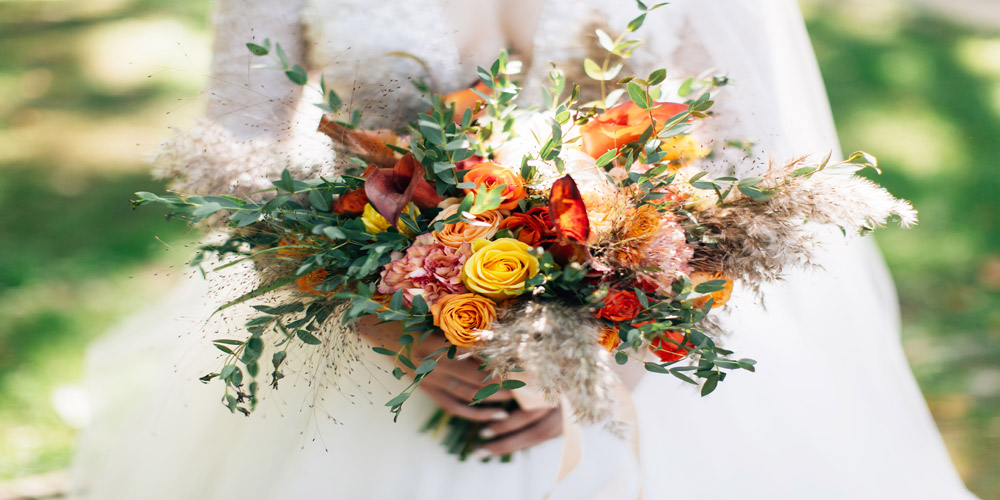The Definitive Guide to Selecting the Perfect Wedding Venue
Importance of Choosing the Right Wedding Venue
When two hearts decide to join as one, the wedding venue becomes the stage where this beautiful union unfolds. It’s more than just a location; it’s a backdrop that reflects the couple’s story and sets the tone for their future together. The right venue can turn a wedding into an unforgettable experience not just for the bride and groom, but also for every guest in attendance.
Factors to Consider When Selecting a Wedding Venue
Selecting the perfect wedding venue involves juggling various elements, including the size of the guest list, the desired atmosphere, and the logistics of the event. From the accessibility of the location to the flexibility of the space, each factor plays a crucial role in ensuring that the big day goes off without a hitch.
Determining Your Wedding Style and Theme
Your wedding is a reflection of your personal style. Whether you envision a classic affair or a whimsical celebration, the theme you choose will guide every decision from decor to dress code. Pinning down your style early on helps narrow down the venue options to those that align with your vision.
Estimating Guest Count and Accommodation Needs
Knowing how many people you plan to invite is key to selecting a venue. A cozy gathering calls for an intimate space, while a grand celebration requires a larger hall. Additionally, consider whether out-of-town guests will need nearby accommodation, and if so, ensure the venue has or is near suitable options.
Identifying Seasonal and Weather Considerations
The season in which you choose to wed can greatly affect your venue selection. Summer may allow for an outdoor setting, whereas winter could necessitate an indoor space. Always have a weather contingency plan, especially for venues that highlight the natural surroundings.
Different Types of Wedding Venues
There’s no shortage of places where you can tie the knot. Each type of venue offers its own unique charm and set of amenities. Understanding what each type offers helps you make an informed decision that suits your needs.
Traditional Venues (Hotels, Banquet Halls)
Hotels and banquet halls are go-to choices for their convenience and full-service offerings. They often provide in-house catering, decor, and staff to help your wedding run smoothly.
Outdoor Venues (Gardens, Beaches, Vineyards)
For those who love nature, outdoor venues offer breathtaking landscapes. Gardens bloom with romance, beaches provide serene vistas, and vineyards combine rustic charm with elegance.
Unique Venues (Museums, Historic Buildings)
If you’re looking for a venue with character, consider museums or historic buildings. They add an element of grandeur and history to your special day.
Destination Wedding Venues
A destination wedding can be an adventure and vacation wrapped up in one. Just remember that planning from afar requires careful coordination and consideration of your guests’ ability to travel.
Ceremony Setup and Decor
The ceremony is the heart of your wedding day. The layout and decor should reflect the significance of the moment. Consider the aisle, the altar, and how you want your guests to experience this pivotal point in your life.
Reception Layout and Design
As the ceremony transitions to celebration, the reception layout takes center stage. A well-thought-out floor plan promotes mingling, dining, and dancing. Think about table arrangements, dance floor placement, and the flow of the evening.
Catering and Bar Service Options
Food and drink are central to any celebration. Your catering choice should match your venue, theme, and dietary preferences. Decide between plated meals, buffets, or food stations, and don’t forget about the bar service and signature drinks.
Transportation and Parking Arrangements
Consider how your guests will arrive and depart from your wedding. Reliable transportation and ample parking are essential, especially if the venue is remote or if alcohol will be served.
Seasonal Considerations for Guest Comfort
The comfort of your guests is paramount. If you’re having an outdoor wedding in summer, think about shade and hydration. In cooler months, warming areas or indoor options are a must.
Entertainment and Activity Planning
Weddings are a time for joy and entertainment. Live bands, DJs, and unique performances all add to the atmosphere. Plan activities that will keep guests engaged and create lasting memories.
Selecting a Professional Wedding Photographer
Photographs capture moments to treasure for a lifetime. Look for a photographer whose style resonates with you and who has experience shooting in venues similar to your own.
Choosing a Videography Style and Package
A videographer can document your day in motion. From cinematic productions to documentary-style films, select a package that fits your budget and captures the essence of your wedding.
Incorporating Cultural and Family Traditions
Weddings are rich with tradition and meaning. Honor your heritage and family customs by weaving them into your ceremony and reception in ways that are meaningful to you.
Creating a Personalized Ceremony Experience
Your ceremony should be as unique as your relationship. Customize readings, vows, and rituals to create a personalized experience that reflects your journey together.
Coordinating with Vendors and Service Providers
As you approach the final stages of wedding planning, coordination with your vendors becomes essential. Creating a timeline and checklist ensures that every detail is covered and that all parties are on the same page.
Bridal Suite, Groom’s Room, and Guest Accommodation
The bridal suite and groom’s room serve as sanctuaries for the couple on their wedding day. Make sure these spaces are comfortable and well-equipped. For guests, secure group rates at local hotels or provide a list of recommended accommodations.
Seating Arrangements and Floor Plans
Seating arrangements are more than just where people sit; they affect how guests interact and enjoy the celebration. Thoughtful placement of tables and clear floor plans contribute to a seamless experience.
Understanding Venue Costs and Payment Schedules
Knowing the full cost of your venue and the payment schedule helps you manage your budget effectively. Be aware of deposits, due dates, and any potential hidden fees.
Negotiating Terms and Finalizing Contracts
Negotiation is part of the process. Understand the terms of the contract, ask questions, and don’t be afraid to negotiate items that are important to you. Once agreed upon, make sure everything is documented and signed.
Reflections on Choosing the Perfect Wedding Venue
The journey to selecting the perfect wedding venue is unique to each couple. It’s a blend of practicality, aesthetics, and heartfelt emotions. Reflect on what matters most to you and let that guide your decision.
Final Tips for a Seamless Venue Selection Process
In conclusion, take your time, do your research, and stay true to your vision. Communicate openly with your partner and professionals, and remember that this is the beginning of an incredible new chapter in your life.
Organizing Transportation for the Wedding Party and Guests
Transportation logistics are an important consideration to ensure that everyone arrives at the right place at the right time. Arrange transportation for the wedding party, as well as any out-of-town guests who may need assistance getting to the venue. Consider options like limousines, shuttles, or carpooling.
Planning the Reception Program and Entertainment
The reception is where the party truly begins. Plan the flow of events, including the grand entrance, speeches, first dance, and cake cutting. Consider hiring a DJ or band to provide entertainment throughout the evening. Don’t forget to include extra touches like a photo booth or interactive games to keep your guests engaged and entertained.
Conducting a Final Walkthrough and Confirming All Arrangements
A few weeks before your wedding, schedule a final walkthrough with your venue coordinator or wedding planner. This is an opportunity to go over all the details and confirm that everything is in order. Check the layout, decorations, and any audiovisual requirements. Make a list of any last-minute adjustments or additional items needed to ensure a seamless event.
Congratulations! You’ve reached the end of our step-by-step guide to wedding planning. By following this comprehensive roadmap, you can ensure that your wedding day is everything you’ve dreamed of. Remember to stay organized, communicate with your partner and vendors, and enjoy the journey. Wedding planning can be stressful at times, but it’s also a time of excitement and anticipation. Take moments to pause and cherish this special time in your life.
And most importantly, remember that your wedding is about celebrating your love and commitment to each other. So have fun, make memories, and create a day that reflects your unique love story. Best of luck on your wedding planning journey!











